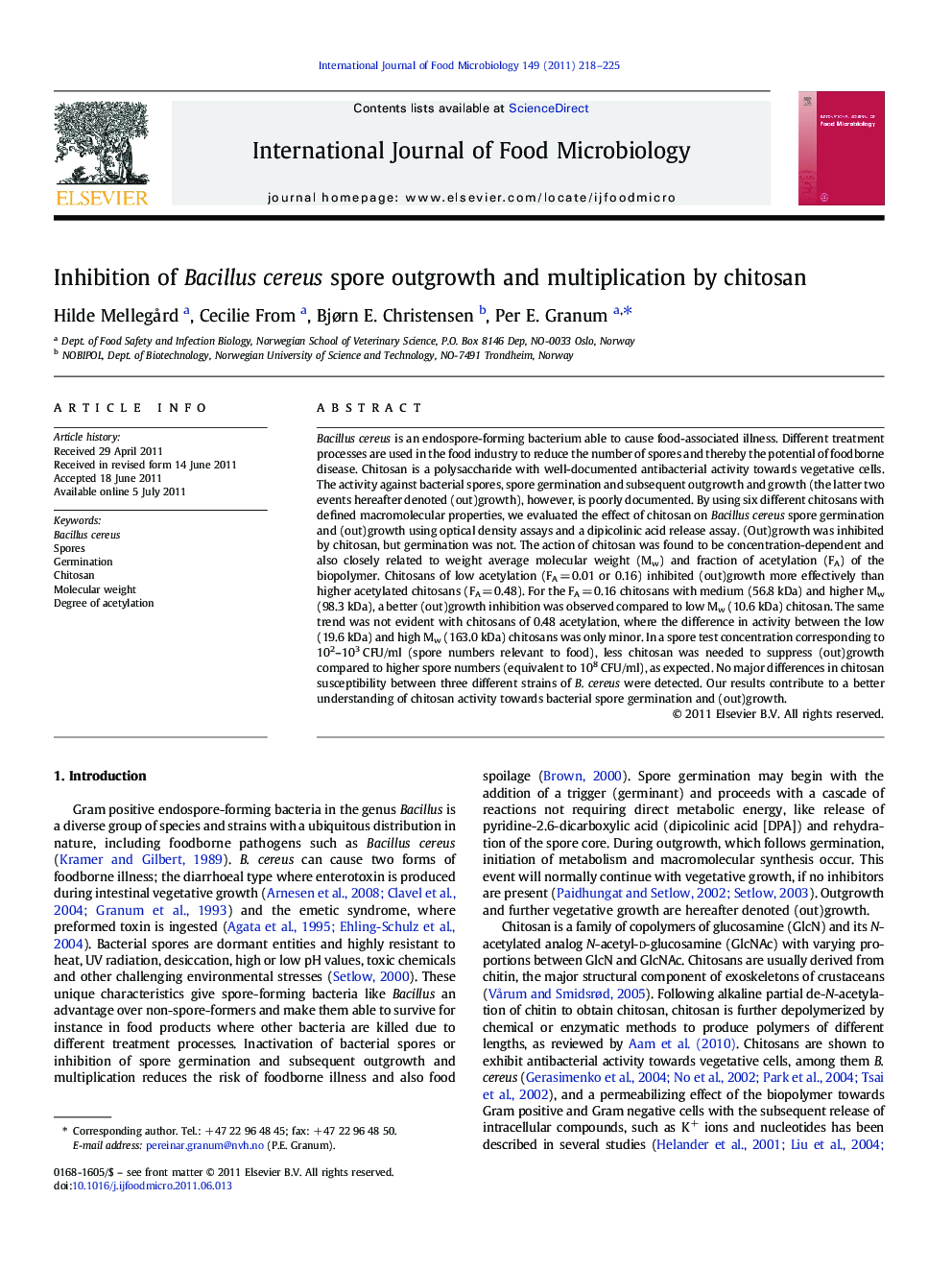| Article ID | Journal | Published Year | Pages | File Type |
|---|---|---|---|---|
| 4368266 | International Journal of Food Microbiology | 2011 | 8 Pages |
Bacillus cereus is an endospore-forming bacterium able to cause food-associated illness. Different treatment processes are used in the food industry to reduce the number of spores and thereby the potential of foodborne disease. Chitosan is a polysaccharide with well-documented antibacterial activity towards vegetative cells. The activity against bacterial spores, spore germination and subsequent outgrowth and growth (the latter two events hereafter denoted (out)growth), however, is poorly documented. By using six different chitosans with defined macromolecular properties, we evaluated the effect of chitosan on Bacillus cereus spore germination and (out)growth using optical density assays and a dipicolinic acid release assay. (Out)growth was inhibited by chitosan, but germination was not. The action of chitosan was found to be concentration-dependent and also closely related to weight average molecular weight (Mw) and fraction of acetylation (FA) of the biopolymer. Chitosans of low acetylation (FA = 0.01 or 0.16) inhibited (out)growth more effectively than higher acetylated chitosans (FA = 0.48). For the FA = 0.16 chitosans with medium (56.8 kDa) and higher Mw (98.3 kDa), a better (out)growth inhibition was observed compared to low Mw (10.6 kDa) chitosan. The same trend was not evident with chitosans of 0.48 acetylation, where the difference in activity between the low (19.6 kDa) and high Mw (163.0 kDa) chitosans was only minor. In a spore test concentration corresponding to 102–103 CFU/ml (spore numbers relevant to food), less chitosan was needed to suppress (out)growth compared to higher spore numbers (equivalent to 108 CFU/ml), as expected. No major differences in chitosan susceptibility between three different strains of B. cereus were detected. Our results contribute to a better understanding of chitosan activity towards bacterial spore germination and (out)growth.
► Our study shows germination and (out)growth responses to chitosan over time. ► Chitosan inhibits (out)growth, but not germination, of spores of Bacillus cereus. ► Inhibitory activity varied with molecular weight and acetylation (FA) of the chitosans. ► Chitosans with low FA (0.01 and 0.16) were generally more active than 0.48-chitosans. ► B. cereus 14579 and two strains involved in foodborne illness were all susceptible to chitosan.
